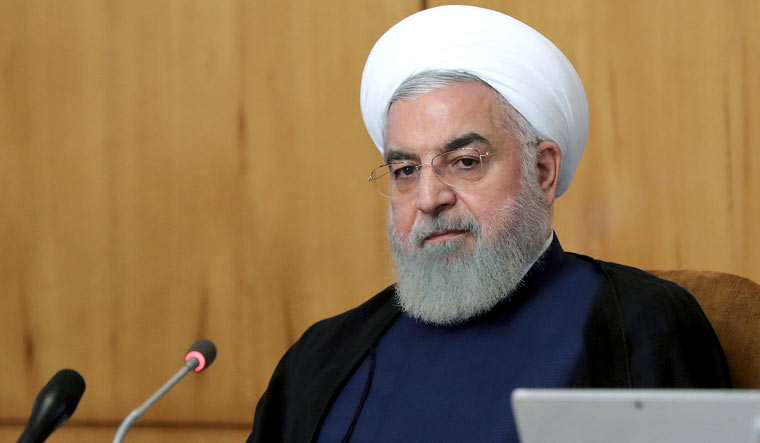Iran took another step towards reducing its obligations under the 2015 nuclear deal, sparking concern by some of the remaining parties to the troubled agreement.
Iran's atomic energy agency said its Fordow plant began enriching uranium from the midnight.
ALSO READ
- Iran fears war with IDF as Mossad, Opposition want Israel to attack Tehran 'directly': Report
- Who is Parastoo Ahmadi? Iran arrests singer for not wearing hijab during online concert
- Israel beefs up IDF security in Golan Heights, Iran evacuates IRGC commanders from Syria as rebels advance
- Trump’s West Asia policy in his second term: Allies and adversaries
- Aleppo offensive: How Lebanon and Ukraine wars helped Syrian rebels to evade radars of Tehran and Moscow
- Aleppo shock offensive: Israel, Iran cautious as Syrian rebels recaptures half the city
"In the coming hours, the process of injecting (uranium hexafluoride) gas into the centrifuges at the Fordow site will be finalised," said agency spokesman Behrouz Kamalvandi, quoted in the semi-official news agency ISNA.
Inspectors from the International Atomic Energy Agency would be present, he added.
The move was Iran's fourth step in a phased suspension of its own commitments in response to US President Donald Trump's abandonment last year of the deal.
Iran had announced Tuesday that it would resume uranium enrichment at the underground plant south of Tehran.
The suspension of enrichment at the Fordow plant was one of the main curbs on its nuclear activities that Iran accepted four years ago in return for the lifting of international sanctions.
But Washington's unilateral abandonment of the nuclear deal in May last year, followed by its reimposition of crippling sanctions, prompted Iran to begin a phased suspension of its own commitments.
Iran's latest move comes the day after the deadline set by Tehran for the remaining parties—Britain, China, France, Germany and Russia—to come up with a mechanism that would allow foreign firms to continue to do business with Iran without incurring US penalties.
Russian Foreign Minister Sergei Lavrov expressed concern about Tehran's announcements but said European powers should do their part.
"They are demanding that Iran fulfil all obligations without exception but are not giving anything in return," he told reporters in Moscow.
The Kremlin has previously called sanctions against Iran "unprecedented and illegal".
French President Emmanuel Macron said Iran had made "grave" decisions and its resumption of uranium enrichment was a "profound change" from Tehran's previous position.
"I will have discussions in the coming days, including with the Iranians, and we must collectively draw the consequences," Macron said at a news conference during a trip to Beijing.
The next few weeks will be dedicated to increasing pressure on Iran to return within the framework of the pact, the French president said, adding that this must be "accompanied by an easing of some sanctions".
"A return to normal can only take place if the United States and Iran agree to reopen a sort of trust agenda" and dialogue, Macron said.
He said he would discuss the issue with Trump.
German Foreign Minister Heiko Maas said Iran must roll back its decision to resume uranium enrichment, calling Tehran's action "unacceptable".
"We call on Iran to reverse all steps taken since July and return to full compliance with its commitments," Maas told reporters in Berlin.
"Our aim is to maintain the nuclear agreement," he said. "We have always fully implemented our commitments and Iran must now urgently relent in order to ease tensions."



